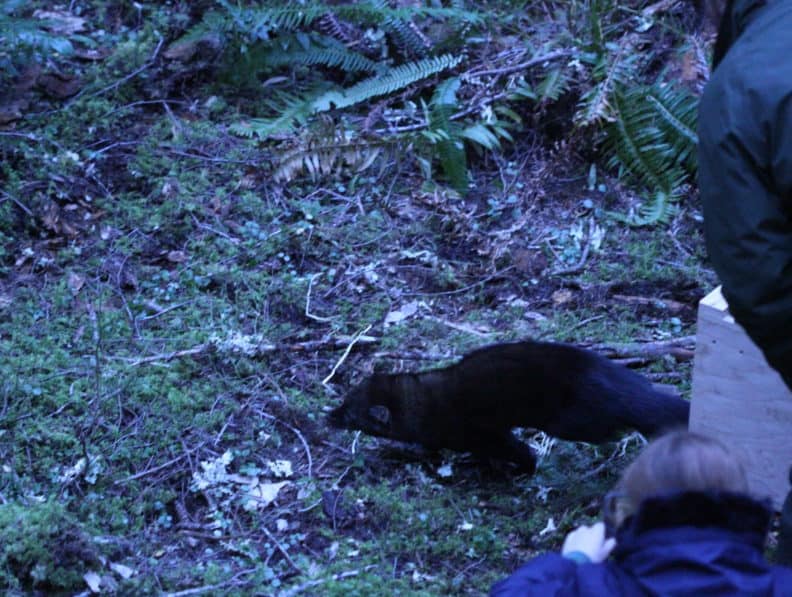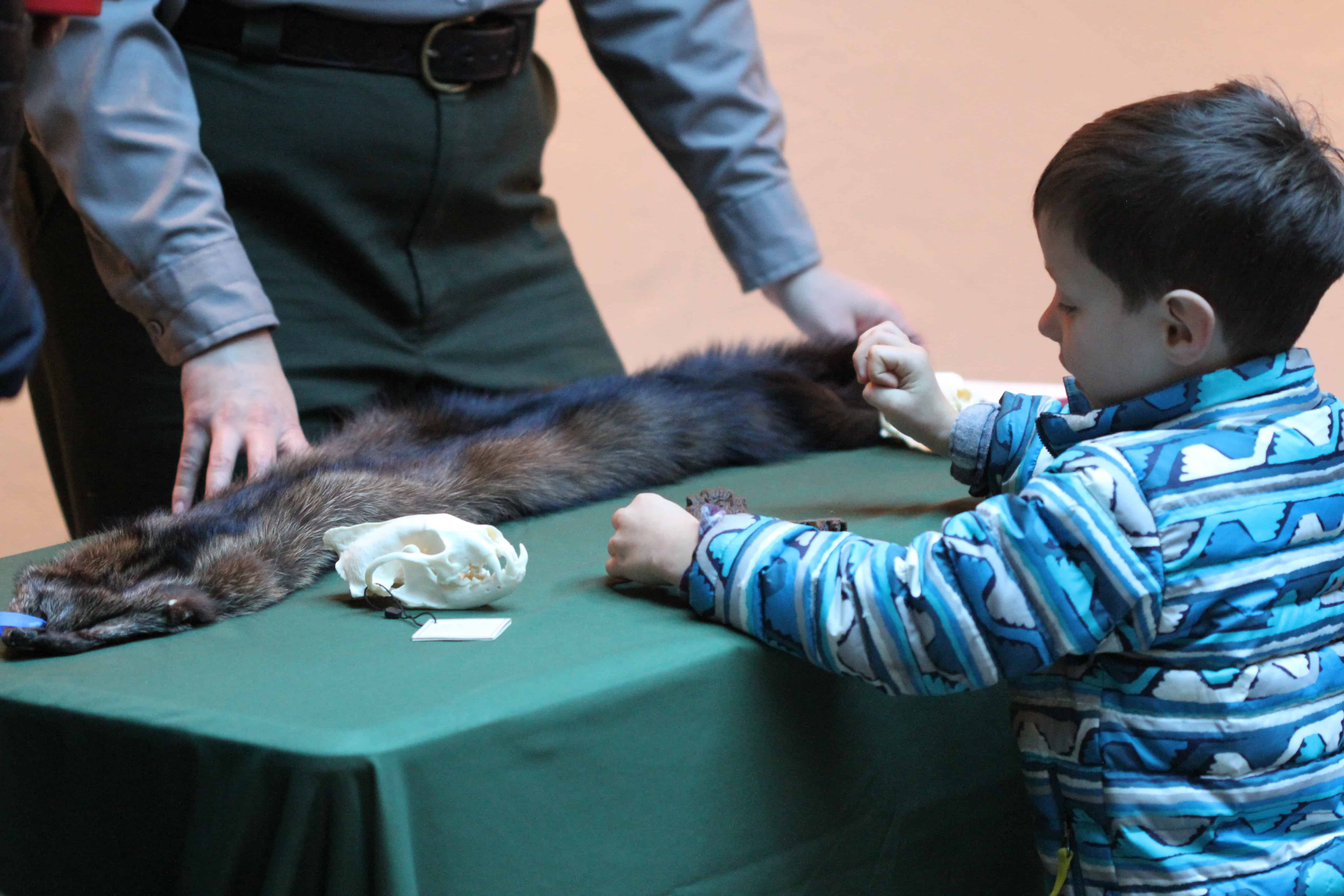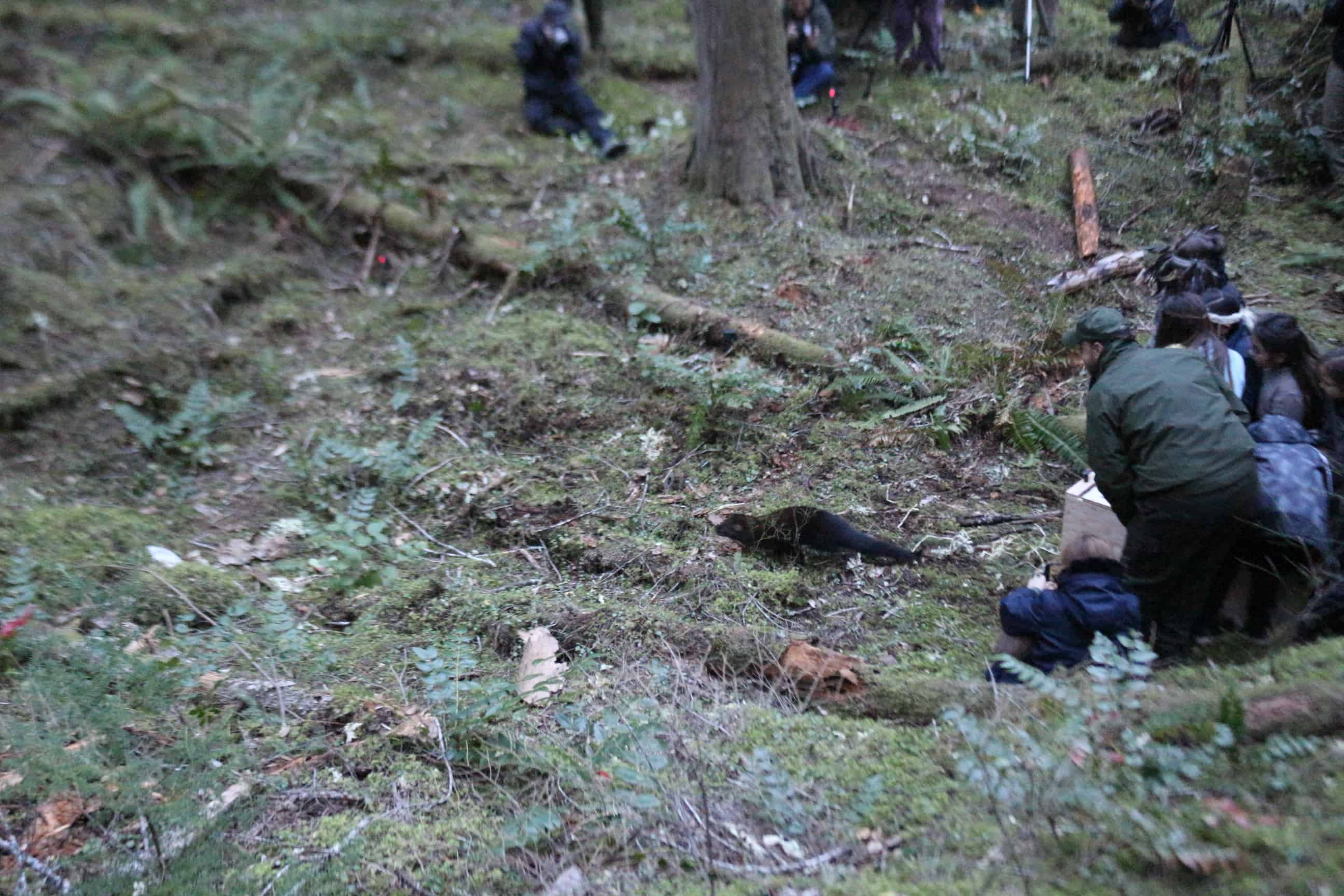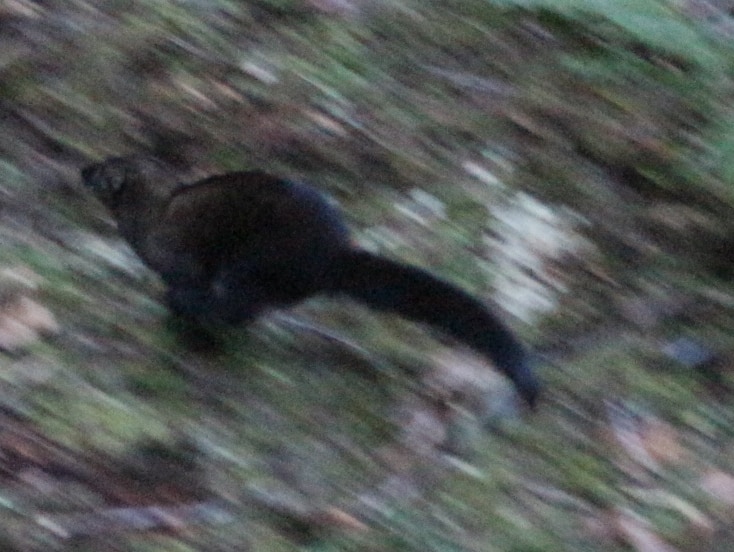
A Promise Fulfilled: 2018 Sees The Return of Fishers to the North Cascades!
On a cold morning, in early December, more than 100 scientists, students and conservation enthusiasts gathered at North Cascades National Park Visitor Center in Newhalem to witness the exciting culmination of a years-long project to return fishers to the North Cascades. The C18 Cohort from the North Cascades Institute’s Graduate M.Ed Program was in attendance to show support, and witness conservation biology first-hand as part of their Fall Natural History studies.
Many of the cohort members were unsure of what to expect. “Will we be outside the whole time?” wondered some the students, as we stood in the parking lot watching each other exhale clouds of steamy vapor in the freezing mountain air. “How do these things usually go?” “Will we even get see a fisher?” Much to our delight, the professionals at the National Park Service did not disappoint. This was after-all not their first rodeo.
The project to restore fishers to Washington State, after being extirpated through trapping and deforestation in the early 20th century, began in 2008 when the first fishers were released in Olympic National Park. Since then, 90 fishers have been released in the Olympic Mountains, and another 69 were released in the South Cascades between 2015, and 2017. But, until now, they remained absent from Washington’s most rugged and remote mountain ranges in the North Cascades.
After a few minutes of shivering in the parking lot wondering what in the world we were about to see, the crowd was ushered into the Visitor Center, where we were greeted by cookies, coffee and the warm glow of a fire crackling in the fireplace. An interpretive display, adorned with fisher pelts and a flat-hat wearing park ranger was there as well, and there was the palpable feeling that we were about to witness something special.

Before we could see the main event, the group gathered in the Visitor Center auditorium for acknowledgments and the incredible tale of how we got to this point. The work of brining fishers to back the North Cascades was not easy. It required the determination and partnership between dozens of committed scientists, volunteers and conservation activists led by the National Park Service, The Washington Department of Fish and Wildlife and Conservation Northwest. The fishers to be released in the North Cascades were originally supposed to be brought in from British Columbia, but after devastating forest fires ravaged their habitat last year, that plan was scrapped, and the fishers instead were acquired from trappers in Alberta. Before they could be transported U.S., the fishers were held for several weeks at the Calgary Zoo, where they were tested for overall health, and underwent minor surgery to be implanted with radio transmitters so they can be tracked by biologists after their release.
The event was then blessed by members of the Upper Skagit and Lummi Nations, and we went outside to get the release underway. First, the fishers were carried from where the trucks were parked at the Visitor Center down the long, winding switchback of the River Loop Trial to an open mossy forest bottom where the fishers were to be released. Once everyone was in place, and the stage was set, it was finally time to introduce the furry carnivores to their new home.

At approximately 12:30 p.m., with the cameras ready, and student singers from the Lummi Nation singing traditional songs to welcome a lost brother back home, the first cage was open, and history was made. It took a few seconds for the first fisher (an adult female) to pop her head out, but once she did, it was only a moment before she bounded off into the forest, and out of view!
In all, 6 fishers, 1 male and 5 female, were released in the North Cascades, but the story will not end here. December’s release is just the first of many. The park is planning to release approximately 80 animals between now and 2020, giving the creatures a great chance at becoming a permanent fixture in our ecosystem.
Being able to see these animals return to their home, was a truly unique and inspiring experience. In our trying times of climate change and biodiversity loss around the world, witnessing this event served as a reminder that good work is happening. As humans we still have opportunities to right our wrongs, and offer 2nd chances to species that were once forgotten.
Along with fishers, grizzly bear reintroduction to the North Cascades is also in the works, and the biologists at the fisher release indicated that we may see these bears back in the North Cascades in the coming months. All good news as efforts to protect, preserve, and restore our wild lands continue. Stay tuned!


